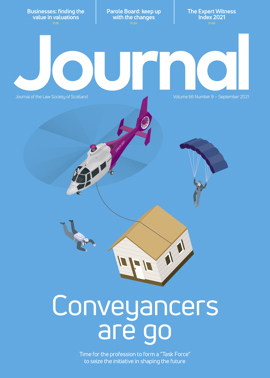Intellectual property: David v Goliath battle continues
The Court of Appeal has delivered its latest instalment in the longrunning trade mark dispute, Sky Ltd v SkyKick UK Ltd, allowing Sky’s appeal and overturning the High Court’s ruling that its trade marks were partially invalid due to bad faith. It also dismissed an appeal on the issue of passing off.
By way of background, this dispute centred on SkyKick Inc, a Seattle based startup company, and Sky plc, the media and telecoms giant. This has been a protracted battle and has been hard fought by SkyKick, which has generally been lauded for its arguments and focus on a number of key trade mark issues. Despite various setbacks, SkyKick was considered successful when last year, the High Court found that Sky’s filings were made in bad faith and that Sky had no intention of using its trade marks for some of the goods and services specified in its trade mark applications. Accordingly, such trade marks were found to be invalid for those goods and services on the ground that they were made in bad faith. Sky appealed against this ruling.
The Court of Appeal has now concluded that in fact Sky never did act in bad faith: [2021] EWCA Civ 1121 (26 July 2021). The court undertook a comprehensive review of UK and EU law on bad faith and found in Sky’s favour. Sir Christopher Floyd, giving the judgment of the court, concluded:
On the High Court’s “no prospect of use” ruling, he disagreed that there was bad faith where a trade mark applicant had no prospect of using the mark in relation to each subdivision of a goods and service specification. Indeed, the Court of Appeal concluded that a finding that an applicant had no intention to use a mark for a specific category at all might support a finding of bad faith, but a finding that it did not intend to use the mark across the breadth of the category would not.
It was not evidence of bad faith when an applicant could not demonstrate a commercial strategy for using the marks in relation to each category of goods and services falling within the general description. Indeed, it was recognised that the strategy of broad filing to cover future goods within a category was a common approach. Sir Christopher found that there was nothing wrong with filing for a broad category of goods and services where there is an intention for use in at least one item within the category. The example given was where an applicant only sold one item of “software” but would be justified in applying to cover computer software as a whole.
The Court of Appeal found that the High Court had failed to undertake a fresh assessment of bad faith in relation to each of the categories of goods and services in question, and had wrongly concluded that Sky had applied for its trade marks as a “legal weapon”. This broad approach was inconsistent with the findings that the marks were only partially invalid. It further found that Sky’s approach of filing widely for computer software could not be considered bad faith, as Sky had extensively used its mark for software and could be expected to do so in the future; the lack of commercial strategy was not evidence of bad faith as Sky had a substantial software business and so a wide filing could be reasonably expected.
In addition, the court of first instance had made a procedural error in not requiring SkyKick to specify what restricted versions of Sky’s goods and services were appropriate so that Sky could defend itself on those specific points.
While the ruling will provide reassurance to owners of UK trade mark registrations that cover broad specifications, the latest decision has been hailed as a disappointment by UK trade mark practitioners generally. The case was seen as a real opportunity for the courts to address the ever increasing problems of the cluttering of registers due to the use of broad terms such as “computer software”, and of the length of specifications. Sir Christopher indicated that it would impose an “increasingly impossible burden” on applicants if they had to specify finely the goods and services being applied for rather than use broad terms. This approach, though, can cause real problems for businesses who are trying to seek clearance of new brands prior to launching them to the market.
SkyKick has stated it will seek permission to appeal to the UK Supreme Court for a final say on these issues, so the battle continues!
Regulars
Perspectives
Features
Briefings
- Civil court: Legacy of COVID
- Corporate: The enigma of economic duress
- Employment: where will work be found?
- Intellectual property: David v Goliath battle continues
- Agriculture: Crofting disputes: some first principles
- Sport: Arbitration – within the rules?
- Property: ADS: the hidden traps
- In-house: On harm, stakeholders and risk management
In practice
- Ask Ash: Colleague's chat is my privacy
- Lockdown no more
- The Word of Gold: The potency of passion
- Get interactive at the Law and Technology Conference
- Ten red flags for conveyancers
- The Eternal Optimist: So, what do you want to be?
- Commissary: the top 10 failings
- Mobility challenges – and the kindness of strangers
- When all is remote







